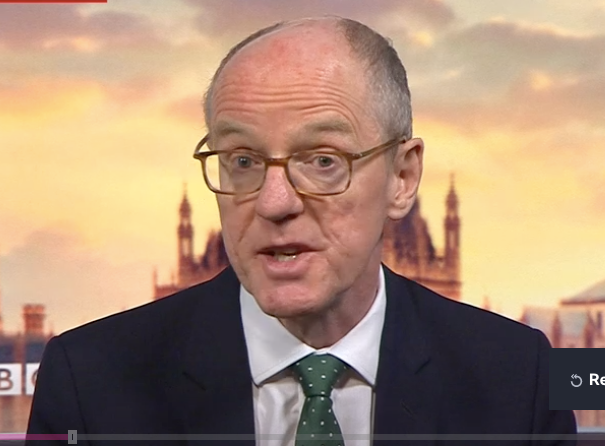Parents could be fined for not sending children back to school as 'last resort', says minister
Government says teachers can 'reassure' parents about low risk in schools

Your support helps us to tell the story
From reproductive rights to climate change to Big Tech, The Independent is on the ground when the story is developing. Whether it's investigating the financials of Elon Musk's pro-Trump PAC or producing our latest documentary, 'The A Word', which shines a light on the American women fighting for reproductive rights, we know how important it is to parse out the facts from the messaging.
At such a critical moment in US history, we need reporters on the ground. Your donation allows us to keep sending journalists to speak to both sides of the story.
The Independent is trusted by Americans across the entire political spectrum. And unlike many other quality news outlets, we choose not to lock Americans out of our reporting and analysis with paywalls. We believe quality journalism should be available to everyone, paid for by those who can afford it.
Your support makes all the difference.Parents could be fined as a "last resort" if they refuse to send their children back to school, an education minister has warned.
Nick Gibb said teachers should try to "reassure" parents of the need to send their children back to school but said there was a "moral imperative" to do so.
Asked whether fines were a possibility for parents who continued to resist, he told the BBC: "Fines are something that headteachers are very reluctant to use, they only use them as a last resort."
Mr Gibb said that "where there are families that have particular concerns they should discuss them with the headteachers".
When it was suggested that such discussions could still result in parents not being reassured, the minister said this did not change the fact that children would have to attend school.
He added: "It is important, it is a moral imperative that young people are back in schools."
In June, education secretary Gavin Williamson specifically warned that fines were an option, stating: "Unless there's a good reason for absence… we'd be imposing fines on families."
"We do have to get back into compulsory education and obviously fines sit alongside as part of that," he said.
Under the government's school absence fines system, councils can issue parents with a fixed penalty notice of £60, which rises to £120 if it isn't paid within 21 days.
If this on-the-spot fine isn't paid within 28 days parents be prosecuted and face a further fine of £2,500 and even a prison sentence of three months, plus a parenting order.

A Downing Street spokesman said the government was encouraging any parents with concerns about the return to school to speak with their children's headteachers, but stressed that fines for missing classes remain "a last resort".
The spokesman said the prime minister had been clear there was a "moral responsibility" to ensure children get an education, and signalled that Boris Johnson would not favour a rota system with different pupils coming in on different days of the week.
Asked whether such a system would be acceptable, the spokesman replied: "We have been clear about what we want to see next week. Obviously, it is up to schools to ensure they can accept children back into school safely. That's why we have been working with them throughout the pandemic to ensure they can return safely next week."
The spokesman indicated that schools could be forced to close their doors again in the event of new local lockdowns in response to spikes in numbers of Covid cases.
“Obviously we would need to look at the local area and it would be done on a case by case basis," he said.
“We’ve been clear about any suspected cases and how we would deal with them and if there was a case where… children weren’t able to go to school, we’ve been clear we expect the school to provide remote education."
The spokesman said that official guidance does not recommend that teachers wear face coverings during lessons, noting that this can "obstruct communication between teachers and pupils".
And he cautioned that parents meeting at the school gates remain subject to the same social distancing rules as anyone else, which bar them from going for a coffee inside a cafe with members of more than one other household or gathering outside with more than six people.
Classes are set to return in September after a long hiatus due to the coronavirus outbreak. Mr Johnson said overnight that it was "vitally important" for pupils to return and that the life chances of a generation were at stake.
The prime minister argued that "it is far more damaging for a child's development and their health... to be away from school any longer".
Schools in Northern Ireland are returning Monday, while some schools in Scotland have already gone back. The term in England and Wales starts in September.
Over the weekend chief medical officer Chris Whitty said that "the chances of children dying from Covid-19 are incredibly small" and that "many more are likely to be harmed by not going than harmed by going".
Join our commenting forum
Join thought-provoking conversations, follow other Independent readers and see their replies
Comments